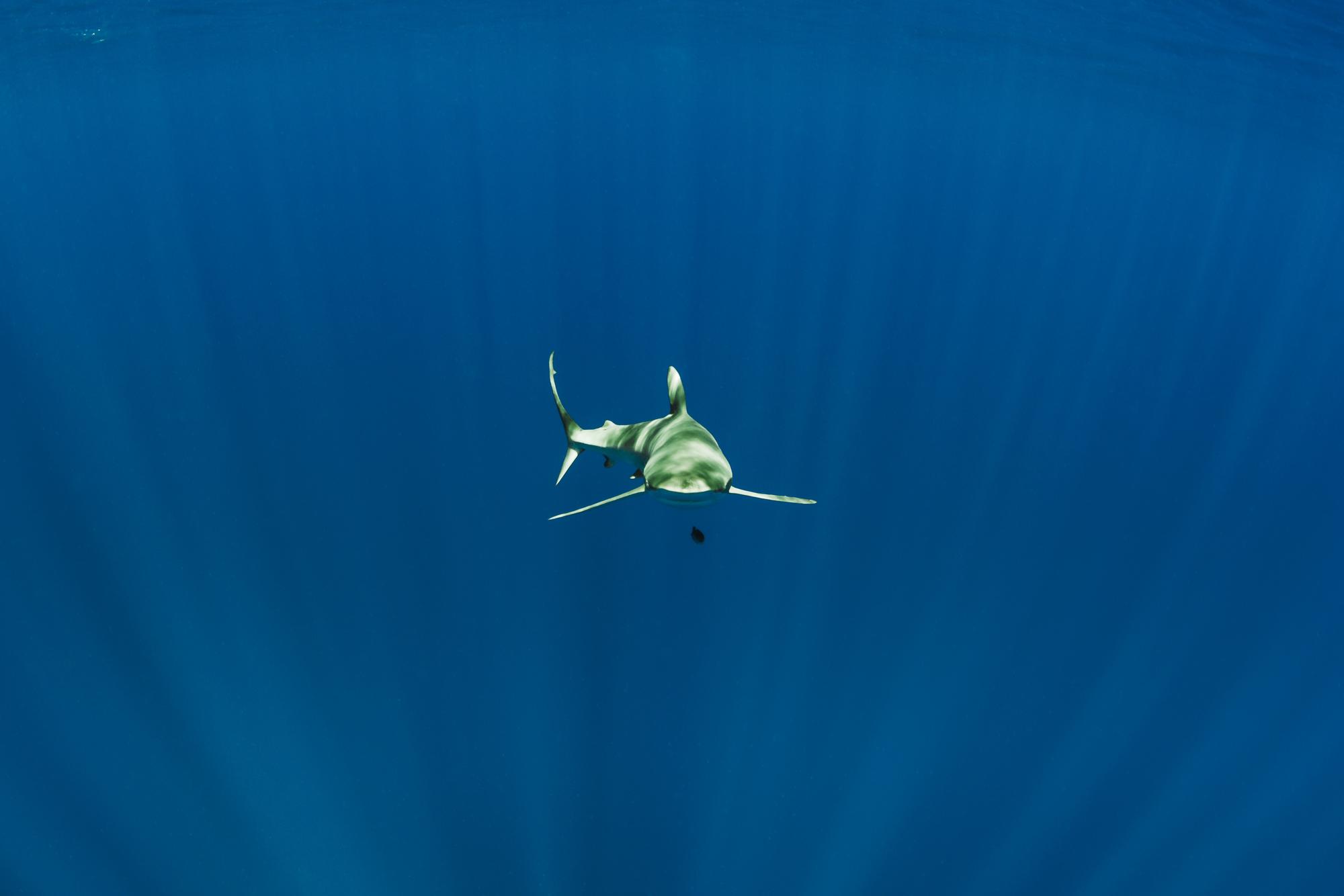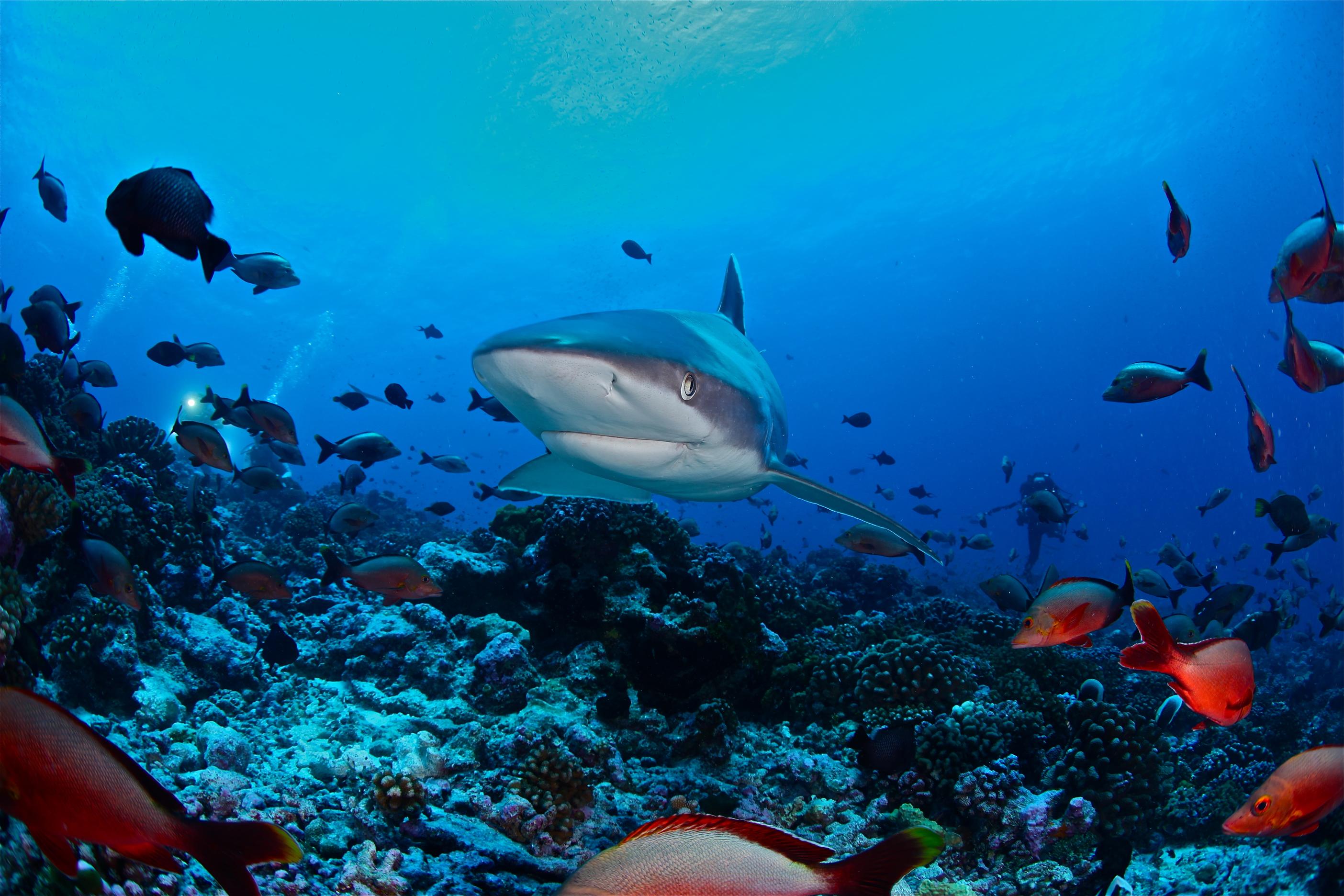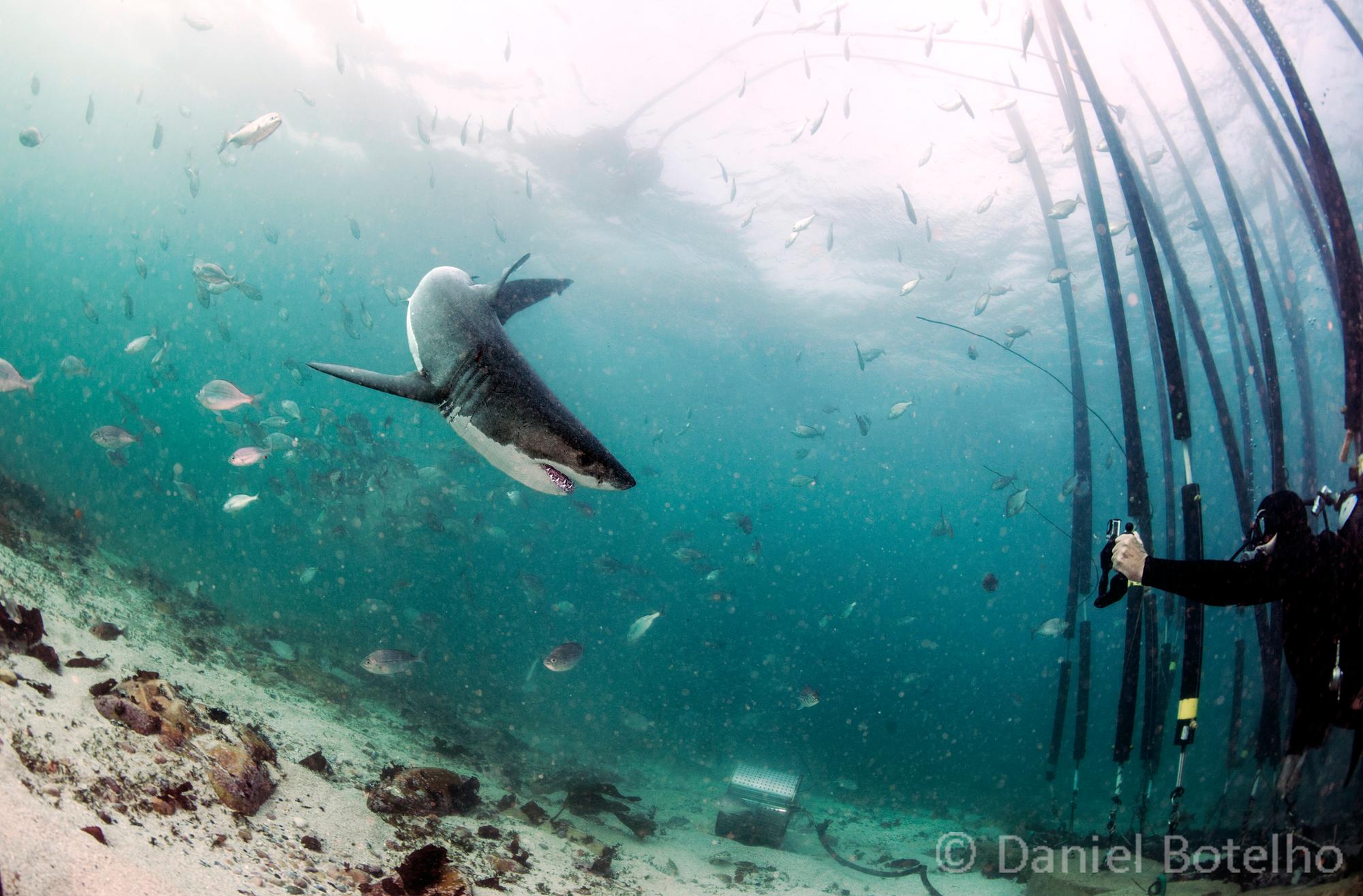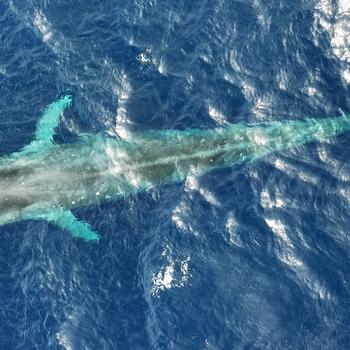Sharks have long been cast as villains in popular culture — ruthless predators terrorizing beachgoers. In truth, the real danger isn’t to us, but to them.
Sharks rarely attack people , yet humans kill an estimated 100 million of them every year. Over the last half century, shark and ray populations have dropped 71 percent , largely due to increased fishing pressure. This isn’t just bad news for sharks — it threatens the balance of entire ocean ecosystems.
Without sharks, the ocean would look entirely different — with far-reaching effects, including for people. Here’s why:
1. Sharks keep the food web in check. Many shark species, such as the great white and bull shark, sit atop the food chain. By targeting fish that are weak, sick and aging, they help keep schools resilient and strong — and, in turn, support ocean health.
When sharks are wiped out from a habitat, the prey-predator balance can crumble: One study found that in coral reefs, fewer sharks led to greater numbers of mid-level predators that feed on algae-eating fish. Algae soon overtook the reef system, suffocating the coral and diminishing its ability to recover from bleaching and other threats.
In Indonesia, a project from Conservation International is aiming to correct this imbalance by doing something that’s never been done before: releasing captive-bred sharks into the wild.
Further reading: How an extraordinary new effort is giving sharks a fighting chance
© Rodolphe Holler
Sharks are slow breeders and the target of intense overfishing — a recipe for extinction.
2. Sharks may be key to fighting cancer. Sharks have been around for a long time — the earliest evidence goes back 450 million years , making them older than trees. Over that vast span of time, their cells have evolved ways to repair DNA damage more efficiently, keeping their genomes stable and helping them recover from injuries. This may help them resist some age-related diseases, including certain cancers.
Scientists are currently studying the genetic makeup of both nurse sharks and great whites to see if they can mimic this effect in humans to help treat cancer.
3. Sharks help capture carbon. Carbon is the foundation of life on Earth, but human activities like deforestation and fossil-fuel use are pumping extra carbon into the atmosphere, fueling climate change. Sharks play an important role in keeping more carbon stored deep within the ocean and out of the atmosphere.
For example, by preying on species that graze on seagrass meadows and kelp forests , tiger sharks help keep these habitats healthy and productive. In turn, these ecosystems continue to capture and store large amounts of carbon.
Further reading: An overlooked climate ally is in deep trouble
Research also shows that sharks, like other large marine animals, hold a considerable amount of carbon in their bodies — roughly 10 to 15 percent of their body mass. When they die, their bodies sink to the bottom of the ocean, where that carbon can be locked away for centuries instead of re-entering the atmosphere.
4. Sharks boost local economies. In recent decades, shark tourism has grown into an economic powerhouse, generating more than US$ 300 million every year and supporting thousands of jobs in coastal towns — from the Bahamas to South Africa to the Galápagos Islands. If sharks disappear, so would many communities’ income streams.
On the flip side, sharks' undeserved reputation as cold-blooded killers can sometimes scare tourists away. And methods that attempt to prevent sharks from entering beaches, like shark nets, are both highly ineffective and catastrophic for marine life . SharkSafe Barriers , an investee of CI Ventures (Conservation International's investment arm), is working to ease those fears with an innovative approach. Using barriers that mimic thick kelp forests, which sharks naturally tend to avoid, and magnets, which overwhelm sharks’ senses, they’re able to protect beachgoers' peace of mind, while ensuring sharks can swim safely offshore.
Further reading: Meet the startup using magnets to keep sharks at bay
© Daniel Bothelo
SharkSafe Barriers mimics a kelp forest and uses powerful magnets to deter sharks.
5. Sharks inspire smart design. One of sharks' most notable attributes is their speed — the world’s fastest shark, the shortfin mako, can reach speeds up to 74 kilometers per hour (46 miles per hour), owing to small scales on their skin called denticles that decrease drag and turbulence. Scientists have borrowed this “technology” in a variety of ways — from designing sleeker swimsuits for competitive swimmers to developing a paint for airplanes that researchers say could save up to 4.5 million tons of fuel per year.
Want to support work that protects sharks? Here’s one way .
Further reading:
Editor's note: This post originally published in June, 2016.
Mary Kate McCoy is a staff writer at Conservation International. Want to read more stories like this? Sign up for email updates . Also, please consider supporting our critical work .





